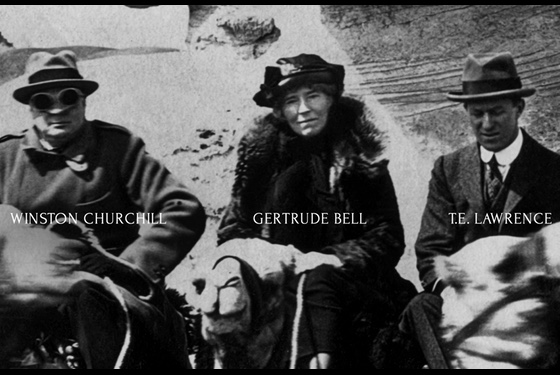Zeva Oelbaum & Sabine Kreyenbühl/ UK/ 2016/ 95 mins
In select cinemas nationwide now.
It’s perhaps due to the enduring appeal of David Lean’s epic that T.E Lawrence “Of Arabia” remains an iconic cultural figure. But there was another person who achievements as a political officer and administrators, as well as traveller, writer and archaeologist, shaped the modern middle-east region as we know it. That person was the trailblazing Gertrude Bell, whose unique perspective and knowledge of the tribal factions of Mesopotamia was utilised by the British government in creating the state of Iraq.
Filmmakers Zeva Oelbaum and Sabine Kreyenbühl aim to give a sense of the person Bell was. They piece together her life from the prodigious volumes of letters show she wrote to family, colleagues and friends. These are read immaculately by Tilda Swinton. They also use gorgeous, old, scratchy archival footage, and Bell’s photography from her long treks through Syria, Mesopotamia and Arabia. Various actors portray friends and colleagues in talking head interviews. These were shot on 16mm film and “aged up” to remain in keeping with the film’s aesthetic.
These talking heads are something of a mixed bag. While they give a sense of immediacy, and brings the character of Bell to vivid life, rather than as a distant historical figure, they also feel spliced into the narrative a little awkwardly. Also, by making the focus as contemporaneous as possible, it rather lets the filmmakers get away without addressing the more problematic colonial exploits and the long-term morass caused by British meddling in the region.
Bell was astute enough to acknowledge that the interest in the region was mainly down to oil; “detestable stuff”, as she put it, yet still she acted as king maker. She was instrumental in installing Faisal of the Sunni house of Hashim as monarch, despite her knowledge of the internecine tribal fractions between Sunni and the Shia majority. Some more historical insight, viewed through the lens of the subsequent ninety years would have been welcome and enable us to view her achievements in a wider context.
That said, Letters From Baghdad is an absorbing, if occasionally plodding portrait of an extraordinary woman who lived an extraordinary life. The film’s strength is in showing the affectionate, loving side she expressed to her beloved father and those who knew her best; in contrast to the haughty, arrogant public face she is reported to have often demonstrated. It’s otherwise competently made, even if the various methods of its construction don’t always sit together entirely coherently and well worth seeing for a glimpse into the life of a woman at least partially responsible for shaping the face of an entire region.


Comments